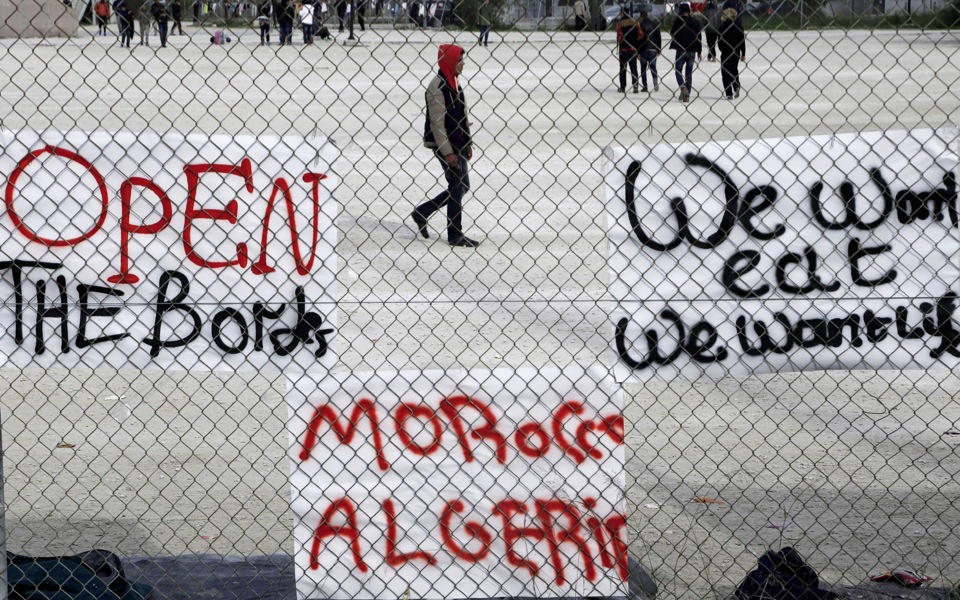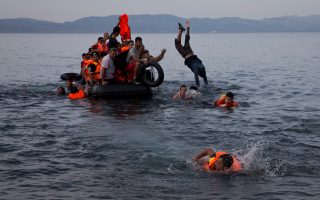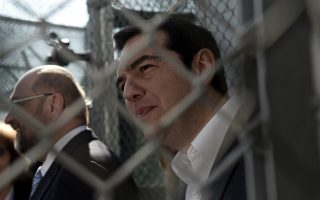Draft conclusions of upcoming EU summit suggest Greece to be pressured over migration

Greece is expected to come under significant pressure over its response to the refugee crisis at the European Union leaders’ summit on Thursday and Friday.
According to the meeting’s draft conclusions, which have been seen by Kathimerini, leaders will call for better monitoring of the EU’s outer borders and the functioning of so-called “hot spots” from where refugees can be relocated.
The draft conclusions also call for a series of actions to be taken by member-states to rectify such weaknesses ahead of the next European Council on February 18 and 19.
In a bid to counter criticism that it is not doing enough, the Greek government on Tuesday distributed aerial photographs of new registration centers for migrants and refugees.
Video footage and pictures showed temporary shelters on Lesvos, which so far houses the only hot spot. On Chios, a row of prefabricated homes for migrants has been set up outside an abandoned factory. On Leros, dozens more prefabricated homes have been erected outside a former psychiatric hospital.
Greece’s five EU-assisted hot spots on Lesvos, Chios, Leros, Kos and Samos, due to be operational this month, will also provide temporary shelter to 7,500 people.
In addition, the EU on Tuesday announced plans to create a 1,500-strong rapid reaction force to protect borders and nearly triple the amount it spends defending frontiers.
The plan put forward by the European Commission aims to replace the current EU border agency Frontex with a new European Border and Coast Guard that will receive funding of 322 million euros by 2020.
However, Brussels proposes that the Commission should have the power to deploy the proposed force even if the member-state concerned has not consented.
Although Athens generally supports the broad strokes of the proposal mooted by the European Commission, diplomatic sources indicate that it has two strong reservations: firstly to the proposal that the force should be able to deploy guards to a country’s border in an emergency even if the government of that country raises objections; and secondly to the prospect of joint border patrols with authorities of non-EU countries.
Diplomatic sources and aides close to Tsipras said the idea of the force is welcome as it would provide Greece with the additional human resources and material support that it needs to guard its borders.
But Greek officials are concerned that the blueprint foresees allowing the force to override the will of national governments. Averting a proposed deployment would require the backing of about three-quarters of the European Council, according to the draft proposal. A national veto would not be enough.
The other major concern is the prospect of joint border patrols. Greece is particularly worried about any attempts to oblige it to cooperate in the Aegean with Turkey, with which it has territorial disputes. Greek officials argue that such proposals would violate a country’s sovereign rights, as enshrined in the Lisbon Treaty.
According to sources, Athens has not ruled out vetoing the proposal unless there are improvements. However, officials believe it is likely that changes will be made as several other EU member-states, including Spain, Poland, Italy, Hungary and Malta, are said to be concerned about the proposal as it stands.





